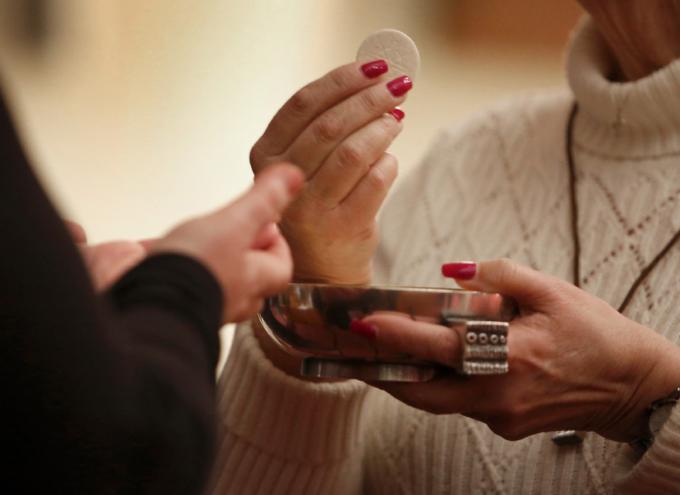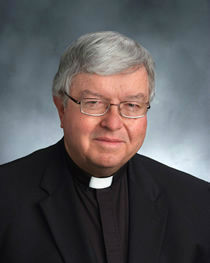
Faith
In the circumstance you raise, my own choice as a priest would have been to celebrate the Eucharist. You, after all, had fought off the snow to arrive at church, and you deserved to be credited and accommodated.

Doyle
Q. This morning, I went to weekday Mass, as is my custom. Due to a heavy snowstorm in the area, I was the only person there, so the priest decided not to celebrate Mass. I asked whether I could receive Communion, and the priest said that he was unable to do that since Communion can be given only during a Mass.
I didn't question him at the time, but simply left and went home. But on the way home, I began to wonder about it. For more than 30 years, I have been a eucharistic minister in hospitals throughout the Syracuse area, bringing Communion to patients in their rooms. If it is possible for them to receive Communion without attending Mass, why couldn't I? (Central New York)
A. It is true that, in ordinary circumstances, holy Communion is to be received only when someone participates in the celebration of the entire Eucharist. The bread and wine are offered, transformed into the body and blood of Christ, and then returned by God to the worshipper as a full sharing in the sacrifice of Jesus.
There are, however, exceptions. One is the situation you mentioned, when a patient is visited in a hospital room by a eucharistic minister bringing the gift of Communion. Another is a Sunday or weekday celebration in the absence of a priest: When a priest is unable to be present, a deacon or designated lay leader may distribute Communion, after appropriate prayers and scriptural readings.
In the circumstance you raise, my own choice as a priest would have been to celebrate the Eucharist. You, after all, had fought off the snow to arrive at church, and you deserved to be credited and accommodated.
What would have been lost if the priest had taken 25 minutes to say a Mass even with just the two of you present -- especially since he had already set aside the time to do that? Not only would the two of you have benefited, but other people as well -- since the Mass is always offered for the needs of the wider church.
Q. I can't seem to find the answer to the following question: Is it acceptable for a Catholic to be buried in a national cemetery? (My inquiry is centered around the issue of consecrated ground.) Any guidance would be appreciated. (Flippin, Arkansas)
A. A Catholic may be buried wherever he or she chooses -- in a Catholic cemetery, a non-Catholic or nonsectarian burial plot or, to your question, in a national cemetery where military veterans are honored. (My preference, of course, would be for a Catholic burial ground because the deceased would have the benefit of the Masses and prayers that are offered regularly for those buried there.)
The notion that a Catholic need always choose a Catholic cemetery may stem from a misreading of Canon 1180 in the church's Code of Canon Law. The first paragraph of that canon states, "If a parish has its own cemetery, the deceased members of the faithful must be buried in it unless the deceased or those competent to take care of the burial of the deceased have chosen another cemetery legitimately."
The word "must" was intended to place the burden on the parish, not on the deceased -- that is to say, the parish is obligated to bury that parishioner if there is room and if that is the family's choice. The following paragraph in this same canon makes the option even more clear: "Everyone, however, is permitted to choose the cemetery of burial unless prohibited by law."
As regards "consecrated ground," when a Catholic is interred in a non-Catholic plot, the priest who officiates at the committal says a prayer that blesses that gravesite.
- Father Kenneth Doyle is a columnist for Catholic News Service
Recent articles in the Faith & Family section
-
Popular devotions and the liturgyFather Robert M. O’Grady
-
The Fight for Our FaithMaureen Crowley Heil
-
The shepherd's voiceScott Hahn
-
Scripture Reflection for April 21, 2024, Fourth Sunday of EasterJem Sullivan
-
The new Temple: How Easter changes religionDr. R. Jared Staudt


















